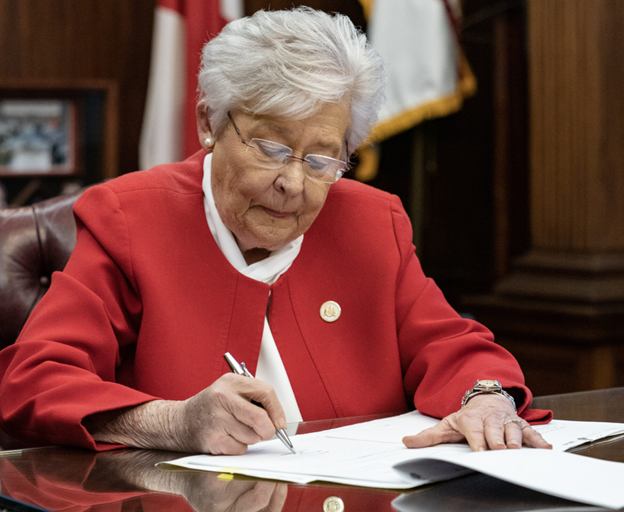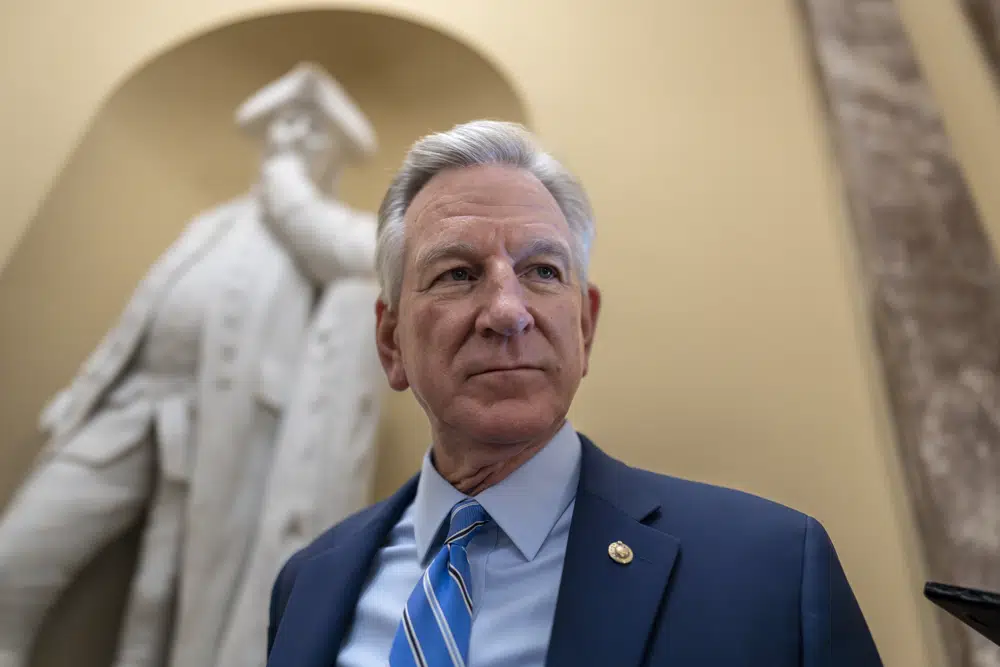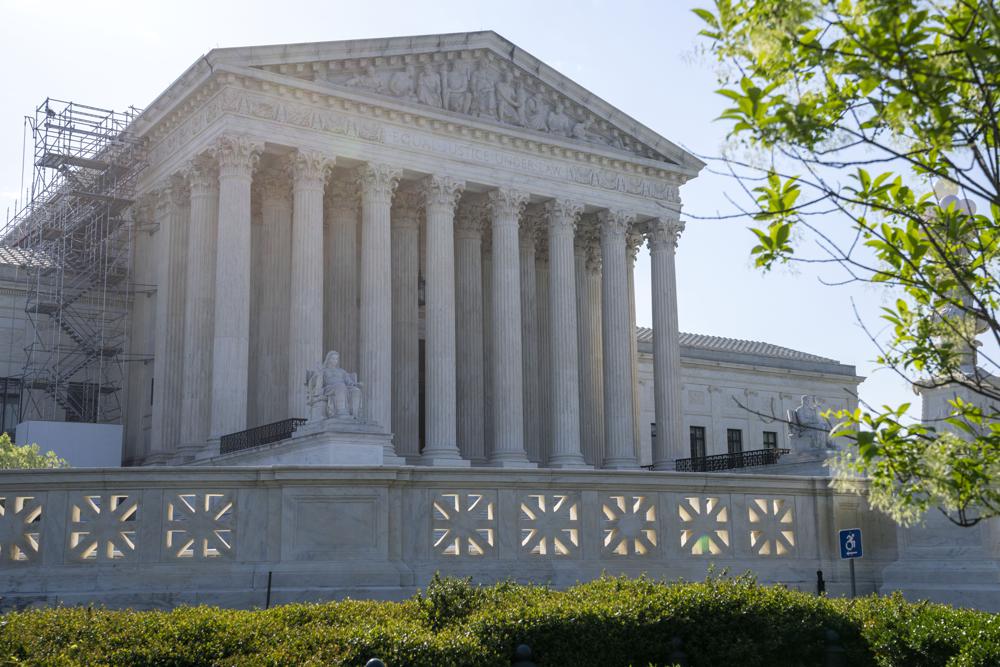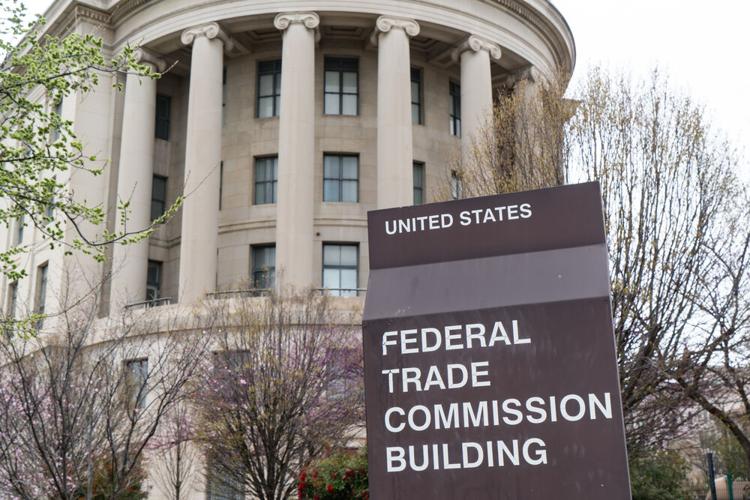Gov. Kay Ivey announces special session for July 17

Governor Kay Ivey on Tuesday issued the proclamation to call the Alabama Legislature into a special session beginning at 2:00 p.m. Monday, July 17, 2023, to address congressional redistricting. “It is critical that Alabama be fairly and accurately represented in Washington,” said Gov. Ivey. “That is why I support the Alabama Legislature readdressing our congressional map in a special session beginning July 17. It is of the utmost importance that this special session only address the congressional map and nothing else. The task at hand is too urgent and too important. The Alabama Legislature has one chance to get this done before the July 21 court deadline. Our Legislature knows our state, our people and our districts better than the federal courts or activist groups do.” The special session is necessary because a special three-judge panel at the Eleventh Circuit Court of Appeals has ruled that the 2021 Congressional redistricting violated the Voting Rights Act of 1965. The Supreme Court ruled earlier this month that the Eleventh Circuit ruling was correct. The three-judge panel has ordered the state Legislature to prepare a new redistricting plan with two majority-minority districts or something as close to that as possible by July 21. On Tuesday afternoon, the Joint Committee on Reapportionment is holding a public hearing on the proposed redistricting. There were efforts by some to get additional issues, such as gambling or absentee ballot reform, placed in the call. Gov. Ivey has rejected those efforts. If the Legislature fails to produce a new congressional redistricting plan or if the plan that they submit to the federal appeals court is not satisfactory to the court, then the court will appoint a special master to reapportion the state himself. This will be the second 2023 special session of the Legislature. The first appropriated $1,030,000,000 in American Rescue Plan Act funds. The 2023 Alabama Regular Legislative Session has already ended. To connect with the author of this story or to comment, email brandonmreporter@gmail.com.
Gary Palmer and Barry Moore aim to protect gas stoves and kitchen appliances

On Tuesday, Congressman Gary Palmer updated constituents on his recent work in Congress, including his work to prevent the federal government from outlawing gas stoves as part of future environmental regulations. On Friday, Congressman Barry Moore also released a statement detailing Republican efforts to protect gas stoves. Both support H.R. 1615, the Gas Stove Protection and Freedom Act, sponsored by Rep. Kelly Armstrong (R-ND), and H.R. 1640, Save our Gas Stoves Act, sponsored by Rep. Debbie Lesko (R-AZ). “The Biden Administration wishes to control every aspect of our lives- even what appliances we use in our kitchens,” Rep. Palmer said. “Last week, House Republicans passed our Save Our Gas Stoves Act to prevent the Biden Administration from regulating our gas-powered appliances. This follows up on my amendment on H.R. 1, our Lower Energy Costs Act, that prevents the Department of Energy from banning 50% of gas stoves on the market. We will continue to hold Washington Democrats accountable and keep them from pushing their green energy agenda on the American people.” This legislation states that the Consumer Products Safety Commission cannot use federal funds to regulate gas stoves as a banned hazardous product or to impose or enforce any consumer product safety standards on gas stoves that would result in a prohibition on gas stoves or otherwise substantially increase the price. “President [Joe] Biden and the radical left want to use the bureaucracy to control every aspect of our lives,” said Moore. “While Alabamians are worried about putting food on the table for their families in the midst of record inflation, Biden is intent on controlling the stoves they use to cook that food, and all so he can pander to his wealthy environmentalist base. Americans deserve to make appliance purchases without our bloated bureaucracy standing in their way.” H.R. 1640 would block the Department of Energy from finalizing, implementing, or enforcing its rule titled the “Energy Conservation Program: Energy Conservation Standards for Consumer Conventional Cooking Products” or introducing an energy conservation standard that would result in the prohibition of a kitchen range or stove based on the type of fuel it uses, including gas stoves. “Inflation is hurting everyone. We have a crisis at our Southern Border. North Dakotans are worried about being able to provide for their families,” said Rep. Armstrong. “What is the Biden administration focused on? Controlling the kind of stove Americans use. This is further incompetence from an administration that seems more interested in dictating every aspect of our lives than solving real problems. Our bills make it clear that Americans should decide if a gas stove is right for their families, not the federal government.” Congressman Palmer is in his fifth term representing Alabama’s Sixth Congressional District. Congressman Moore is in his second term representing Alabama’s Second Congressional District. To connect with the author of this story or to comment, email brandonmreporter@gmail.com.
Tommy Tuberville reports major wins for Alabama in defense bill

On Friday, the Senate Armed Services Committee (SASC) released the text of the Fiscal Year 2024 National Defense Authorization Act (NDAA). The NDAA, which SASC passed on a bipartisan basis, contains several provisions secured by Senator Tommy Tuberville. “This is the land of the free because it’s the home of the brave,” said Sen. Tuberville. “Our freedom and our security depend upon the effectiveness and lethality of our military. Our heroes in uniform deserve a defense bill that gives them the resources, the authority, and the policies that enable them to defend this country. Alabama is proud to play a major role in defending this nation, because we play a key role in defense production, and above all because of the brave Alabamians who wear the uniform. It is my honor to serve on this Committee and to help Alabama serve our national defense.“ Several provisions were requested by Coach Tuberville and have been included in the SASC Committee version of this year’s NDAA. The Senate NDAA would prohibit funds to construct or improve the temporary SPACECOM facilities in Colorado Springs. Tuberville also included a provision limiting the Secretary of the Air Force’s travel budget until a final headquarters location decision has been made. This provision will help accelerate the decision-making process and put pressure on the Biden Administration to finally put politics aside and bring SPACECOM headquarters to Huntsville, which the Air Force selected over 59 locations on the basis of 21 objective criteria. The Senate Armed Services Committee has failed to advance a bill to overturn the Pentagon’s policy that uses tax dollars covers some expenses for service members who must travel for an abortion. Tuberville has held up military promotions for five months in his dispute with the Biden administration over the policy. Tuberville was responsible for a provision in the NDAA that extends the program to remove barriers for Employee Stock Ownership Plan (ESOP) Companies. Alabama is home to many defense contractors that are ESOPs. Coach Tuberville secured millions of dollars in contracts for Alabama’s defense industrial base, as well as a requirement that the Secretary of Defense promote competition between suppliers of building materials—such as lumber—for military construction projects. Mass timber is a major industry in Alabama. Sen. Tuberville authored a provision encouraging the Department of Defense to source more critical minerals and military component production from the United States. This would lessen America’s dependence on China. Alabama produces a variety of critical materials, such as graphite and carbon fiber. The National Defense Authorization Act, or NDAA, outlines our military’s spending and provides guidance on defense policy and funding priorities for the upcoming Fiscal Year. For over six decades, members of the Senate Armed Services Committee have worked in a bipartisan manner to produce this annual defense spending blueprint. Tommy Tuberville was elected to the Senate in 2020. To connect with the author of this story or to comment, email brandonmreporter@gmail.com.
Department of Commerce to send $1.4 billion to Alabama to boost ongoing efforts to expand broadband access

On Monday, Alabama Governor Kay Ivey announced that the National Telecommunications and Information Administration has released the state allocations from the Broadband Equity, Access, and Deployment program. The Alabama Department of Economic and Community Affairs (ADECA), which oversees state broadband initiatives, will administer the grant funds. “My priority is for Alabama to gain full ability to be connected to high-speed internet,” said Gov. Ivey. “We have taken several significant strides toward this goal, and today’s announcement provides a tremendous boost in the journey toward full broadband access no matter where you live in Alabama.” States receiving the funds have 180 days to prepare and submit plans to the NTIA for use of the funds. ADECA’s Alabama Digital Expansion Division will complete Alabama’s required proposal. The division also manages funding from the American Rescue Plan Act and the Alabama Broadband Accessibility Fund for grant programs to help internet service providers extend service to previously unserved or underserved areas. “Thanks to the leadership of Gov. Ivey and a strong team effort among the Legislature, internet service providers, and many others, Alabama is continuing to make great progress in broadband mapping, planning, and deployment,” said ADECA Director Kenneth Boswell. “These efforts have put us in good position with the BEAD program to accelerate our work to close the digital divide in Alabama.” Since 2018, Alabama has invested $88.6 million of state dollars through grant awards supporting 109 projects through the Alabama Broadband Accessibility Fund. Once all Alabama Broadband Accessibility Fund projects awarded to date have been completed, access to broadband service will be available to more than 82,000 Alabama households, businesses, and community institutions that currently have no option to subscribe. ADECA has also developed a statewide broadband map and the Alabama Connectivity Plan, which guide the state’s expansion efforts into unserved areas. In September 2022, Governor Ivey announced a grant to support broadband “middle-mile” network infrastructure to improve access for last-mile projects. ADECA completed community broadband meetings in each of Alabama’s 67 counties in May. The White House made the announcement on Monday when President Joe Biden announced more than $42 billion in new federal funding to expand high-speed internet access nationwide. This will reportedly help an estimated 8.5 million families and small businesses attain connectivity. “For around 24 million Americans across this country, there is no high-speed Internet,” Biden said. “And for millions more, their Internet connection is limited or unreliable. High-speed Internet isn’t a luxury anymore; it’s become an absolute necessity. That’s why we acted as soon as we did — as soon as we came to office — with the American Rescue Plan.” The additional money will be parceled out to states over the next two years. In a formal unveiling at the White House, the president compared the new infrastructure project to the government’s work to electrify the nation’s darkened heartland in the late 1930s. “It’s the biggest investment in high-speed internet ever because for today’s economy to work for everyone, internet access is just as important as electricity or water or other basic services,” Biden said. “In our 21st-century economy, access to reliable high-speed internet is not a luxury. It is a necessity,” said Congresswoman Terri Sewell (D-AL07). “Thanks to President Biden’s Bipartisan Infrastructure Law, we’re devoting more resources than ever before to expanding broadband, closing the digital divide, and ensuring that every Alabamian can connect to high-speed internet. These funds will be a game-changer for our state, and I look forward to working with ADECA to ensure that they are equitably distributed to HBCUs and underserved communities, including in Birmingham and the Black Belt.” Alabama will receive $1,401,221,901.77. California, which has a much bigger population, received over $1.8 billion. To connect with the author of this story or to comment, email brandonmreporter@gmail.com.
Paul DeMarco: Alabama Legislature should tackle election reform in upcoming reapportionment special session

So it appears that lawmakers will be called back to the Alabama statehouse on July 17th to draw new U.S. Congressional districts as required by a recent ruling of the United States Supreme Court. The court ruled that Alabama should establish two districts where a minority could be elected to represent the state in Congress; as of now, there is one. The first priority for Alabama State Representatives and Senators in July will be to pass a new map. However, when legislators are back in Montgomery to debate and approve the new districts, there will also be time to take up another important election issue as well. This past session, a bill sponsored by Representative Jamie Kiel that would have banned ballot harvesting died on the last day legislators met this past Spring. The new law would have made it illegal to pay or be paid for the collection of absentee ballots delivered to polling places. The legislation had passed the Alabama House of Representatives overwhelmingly and a Senate Committee; thus, it was in a position to win approval from the full Senate but never made it to the calendar. There is no question that if it were up for a vote, the supermajority of Republican Senators would have sent the bill to the Governor to sign. Alabama Secretary of State Wes Allen supported the legislation and cited the multiple convictions for fraud related to absentee ballots over the past decade as one of the impetus for the need of this new law. With Democrats in a position to possibly pick up a second Congressional seat in Alabama in 2024, there will be hundreds of thousands of dollars spent in the state’s general election. Republicans hold a slim majority in the United States House of Representatives. Thus the eyes of the Nation will be watching this general election in Alabama. Thus, you can count on major money being sent by national political action committees to the state for get-out-the-vote efforts, as we saw in the 2020 elections. Governor Kay Ivey and lawmakers should agree that the integrity of Alabama elections is essential and cleaning up the absentee ballot process must be a priority. Hopefully, we will see this legislation considered along with the new Congressional maps to be drawn in the upcoming special session. Paul DeMarco is a former member of the Alabama House of Representatives and can be found on Twitter @Paul_DeMarco.
Supreme Court unfreezes Louisiana redistricting case that could boost Black voting power before 2024

The Supreme Court on Monday lifted its hold on a Louisiana political remap case, increasing the likelihood that the Republican-dominated state will have to redraw boundary lines to create a second mostly Black congressional district. For more than a year, there has been a legal battle over the GOP-drawn political boundaries, with a federal judge, Democratic Gov. John Bel Edwards and opponents saying that the map is unfair and discriminates against Black voters. The map, which was used in Louisiana’s November congressional election, has white majorities in five of six districts, all currently held by Republicans. This is despite Black people accounting for one-third of the state’s population. Another mostly Black district could deliver another congressional seat to Democrats. “I’m super excited,” said Ashley Shelton, head of the Louisiana-based Power Coalition for Equity and Justice, one of the groups challenging the maps. “What this does is it puts us back on track to realize a second majority-minority district.” In a written statement, the Louisiana Legislative Black Caucus said, while work still needs to be done, it is “very confident” the state will have two majority-Black districts by the 2024 congressional election. “As I have consistently stated, this is about simple math, basic fairness, and the rule of law,” Edwards said Monday. “I am confident we will have a fair map in the near future.” Every 10 years, state lawmakers — armed with new U.S. Census Bureau information — redraw political boundaries for seats in the U.S. House, state Senate, state House, Board of Elementary and Secondary Education and the Public Service Commission. The process ultimately affects which political parties, viewpoints and people control the government bodies that write laws, set utility rates and create public school policies. The Louisiana case had been on hold pending the decision in a redistricting case involving Alabama. Monday’s order follows the court’s rejection earlier in June of a congressional redistricting map in Alabama. In both states, Black voters are a majority in just one congressional district. Lower courts had ruled that the maps raised concerns that Black voting power had been diluted, in violation of the landmark federal Voting Rights Act. The justices had allowed the state’s challenged map to be used in last year’s elections while they considered the Alabama case. In Louisiana, U.S. District Judge Shelly Dick struck down the map in June 2022 for violating the Voting Rights Act, saying “evidence of Louisiana’s long and ongoing history of voting-related discrimination weighs heavily in favor of Plaintiffs.” Dick ordered lawmakers to hold a special session to redesign the map and include a second majority-Black district. However, lawmakers failed to meet their deadline and, as a result, Dick said she would enact a map of her choosing. The Louisiana case had been appealed to the 5th U.S. Circuit Court of Appeals in New Orleans when the high court put the issue on hold. The justices said the appeal could go forward before next year’s congressional elections. U.S. Rep. Troy Carter, Louisiana’s only Democratic and Black congressman, applauded the Supreme Court for lifting its hold. “This decision shows that in a healthy democracy fair and equitable representation matters, whether to the people of Louisiana or anywhere else in the world,” Carter tweeted. The redistricting process in Louisiana proved to be a political tug-of-war, with the Republican-dominated Legislature and Democrats, including Edwards, fighting over the boundaries since February 2022. Along with the legal battle, the debate over the map included Edwards vetoing the boundaries and the Legislature overriding his veto — the first time in nearly three decades that lawmakers refused to accept a governor’s refusal of a bill they had passed. Republicans have stood by their statements that the map is fair, and argue that trying to include the state’s widely dispersed Black population in two separate congressional districts would result in two districts with very narrow Black majorities that could actually diminish Black voting power. Republished with the permission of The Associated Press.
Attorneys general announce support for FTC’s ‘click to cancel’ subscription policy

As part of the Federal Trade Commission’s ongoing review of its 1973 Negative Option Rule, the FTC proposed in March amendments to the rule and asked for public comment on those changes. California Attorney General Rob Bonta, along with 25 other attorneys general, on Monday submitted a letter of comment in support of the FTC’s proposed amendments in response to the request. The Negative Option Rule covers business sales related to subscriptions, memberships and other recurring payment programs. Negative Option Offers allow businesses to interpret a consumer’s silence or failure to take affirmative action as an acceptance of an offer. One of the rule changes is the “click to cancel” provision to make it just as easy for consumers to cancel unwanted subscriptions, as it was for them to sign up. “If consumers want to cancel a subscription, they should not have to go on a fishing expedition,” said Attorney General Bonta. “Just as businesses make it easy to sign up for a subscription, they need to respect customers who later want to end that subscription.” The FTC reports that one of the concerns expressed by consumers is “How the $%#& do I cancel?!” While signing up for a program is an easy seamless process, when it comes to cancellation, consumers have to go through “obstacle courses designed for frustration and failure.” Another complaint being addressed by the amendments is, “They signed me up, but never told me what was involved!” To address the lack of information, the FTC proposed that companies explain – payments would be recurring, the deadline to stop charges, payment amounts, billing date and cancelation information- all before requesting consumers’ billing information. Consumers also asked, “Why am I getting all this unwanted stuff and who said these people could bill my credit card?!” To address this concern, companies would be required to spell out the details under the FTC’s new rule changes. “The FTC’s proposed changes significantly broaden the requirements and risks for businesses using negative option features and will allow consumers to more easily cancel unwanted subscriptions and memberships,” a statement by the Department of Justice said. The letter by the AGs supports the direction the FTC has proposed and makes suggestions for further clarifications: “Deception and dark patterns have no place in consumer markets, and the proposed Negative Option Rule is the change consumers have been rightly demanding for years. I’m proud to support this effort by the FTC and to offer additional recommendations alongside my fellow attorneys general,” Bonta said. In sending this comment letter, Attorney General Bonta joins the attorneys general of Alabama, Arizona, Colorado, Connecticut, Delaware, District of Columbia, Hawaii, Illinois, Maine, Maryland, Massachusetts, Michigan, Minnesota, Nebraska, Nevada, New Jersey, New York, North Carolina, North Dakota, Oklahoma, Oregon, Pennsylvania, Vermont, Washington, and Wisconsin. Republished with the permission of The Center Square.


